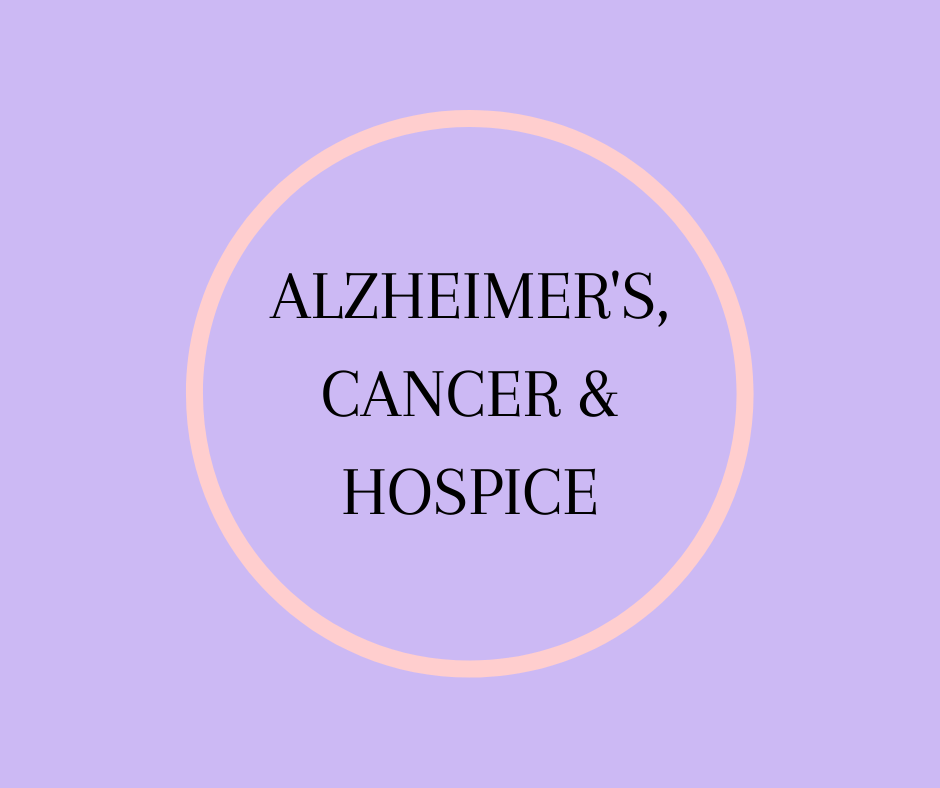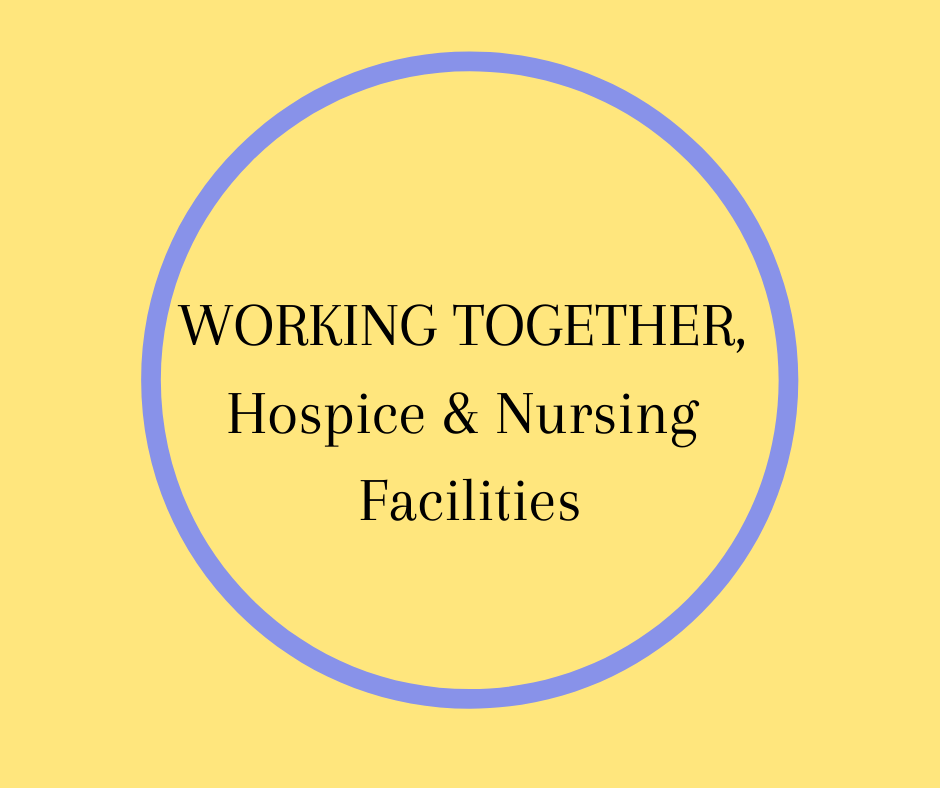Dear Barbara, Would you give me an idea of materials for setting up Hospice training and a Hospice Program?
Here are my thoughts on a hospice training program. It isn't how much medical knowledge a professional has that will make them a good hospice employee. It is their heart, their ability to interact with people. Dying is not a medical event. It is a social, communal event. You really don't need a doctor or nurse at the bedside when someone is dying. You need someone who understands the natural way people die and can educate and guide those present through the experience. So, first, you are going to select employees that don't view death as a medical emergency, as a medical failure, and particularly don't view death as bad. Sad for everyone, yes, but not bad.
Now that you have your staff you want to train them in the natural way people die. Not how they die medically but give them an understanding of how death naturally approaches. My comprehensive three hour training DVD, This is How People Die gives that information and lays the foundation that your staff will need, particularly those who are new to hospice.
You also want to insure that your staff stays healthy so while you select them for their outlook on living and dying you must continue to support them. As part of your orientation play my DVD Care for the Caregiver. You will also give them the booklet You Need Care, Too. I advise creating a "buddy" system where each employee has a buddy to debrief with as the need arises. You want to foster a safe, supportive work environment. Regular social get togethers are bonding as well.
For your hospice program itself I recommend using Gone From My Sight and The Eleventh Hour. Use them as part of your care plan. Document that the booklets were read with the family and discussed. This addresses the Medicare regulation for consistent teaching under quality assurance. It sets the tone of support and education for your families which will also improve CAHPS scores. Most families are alone when their loved one dies at home so if you can't be there The Eleventh Hour read ahead of time becomes their guide. If you develop a No One Dies Alone Program, which I would like to see not just for patients that have no one but for all families, use my booklet The Eleventh Hour for their training.
Use my NEW RULES For End of Life Care DVD Kit with your staff and volunteer training and patient/family orientation as well as in any nursing facility that you are associated with. Give the staff (nurses, social workers, chaplains) an inservice by showing the 25 minute DVD and then talk about it together. Many hospices are showing it to their families on about the second visit and then discussing it as part of family education. It's particularly helpful with food/hydration concerns that families have, as well as covering narcotic/morphine use in end of life. Another way that agencies are using the dvd is as a marketing tool by showing it to church and senior citizen groups.
If you accept someone onto your program that has dementia as the only diagnosis, a tricky diagnosis for determining end of life and hospice appropriateness, then you want to give the family the booklet How Do I Know You? Dementia at End of Life for guidance and support.
Following the death at the first team meeting pass the booklet My Friend, I Care around for team members to sign before you send it to the grieving family. This short booklet becomes your sympathy card but more than that it begins the guidance through grief which is helpful because many families don't take advantage of the support groups that are offered after the patient passes.
As you can see I have addressed all the areas of end of life care education in my writings. There is another booklet, A Time to Live, I wrote for the person directly faced with a life threatening illness. Sadly, hospice tends to get their referrals too late for the patient to read it (It is a great booklet for palliative care patients). I purposely have written all the materials at a 5th grade, non medical level for ease of comprehension while under duress.
As I have lived through these many years in the end of life arena I have assessed its needs and met them with my materials. I hope they are helpful to you in the important work that you do providing care at the end of life.
Something more... about Setting Up a Hospice Program
With so many restrictions on hospice nurses and social workers today, most families are alone at home with their loved one when they die. We all want the death to be a sacred one. The key is to educate those families on what to expect, as well as what to do, so that they can manage the home death on their own. The Eleventh Hour is the tool for families to feel less afraid. If they are educated, they will be grateful for their hospice team. And that is key.








5 comments
Barbara
Hi Kathy, I am so sorry you and your husband had such an uncaring last few days. So many healthcare professionals and institutions just don’t know how to give end of life care. Always makes me shake my head in sadness. Did you talk to the administrator of the nursing facility about your experience? I think even though it has been 2 years since your husband’s death it would be beneficial to the facility (gives them an opportunity to do better from here on) and it will give you a sense of closure with the nursing home. Nothing can change the insensitivity that occurred during your husbands last days but how you are now carrying those memories can change. You also might write your husband a letter and tell him your feelings, the sadness of how his last days unfolded. You can also add anything you ever wanted to say to him (positive and negative) and didn’t. This is just between the two of you, write from your heart. Then burn the letter, release the feelings and ashes to the wind.
My blessings are with you. Barbara
Hi Kathy, I am so sorry you and your husband had such an uncaring last few days. So many healthcare professionals and institutions just don’t know how to give end of life care. Always makes me shake my head in sadness. Did you talk to the administrator of the nursing facility about your experience? I think even though it has been 2 years since your husband’s death it would be beneficial to the facility (gives them an opportunity to do better from here on) and it will give you a sense of closure with the nursing home. Nothing can change the insensitivity that occurred during your husbands last days but how you are now carrying those memories can change. You also might write your husband a letter and tell him your feelings, the sadness of how his last days unfolded. You can also add anything you ever wanted to say to him (positive and negative) and didn’t. This is just between the two of you, write from your heart. Then burn the letter, release the feelings and ashes to the wind.
My blessings are with you. Barbara
Barbara
Hi Pat, to answer your question “Does one need to be medicare certified?” A hospice does not need to be medicare certified but that is how an organization gets reimbursement. There are hospices (not many) that are not medicare certified. They are not bound by the rules and regulations of a certified hospice and go to the community, grants and donations for funding. Blessings! Barbara
Hi Pat, to answer your question “Does one need to be medicare certified?” A hospice does not need to be medicare certified but that is how an organization gets reimbursement. There are hospices (not many) that are not medicare certified. They are not bound by the rules and regulations of a certified hospice and go to the community, grants and donations for funding. Blessings! Barbara
kathy frisken
i wish i had this information before and when my husband died in 2017. although he
had vascular dementia he recognized all of us and talked to everyone. i have many regrets
about even having him a care facility and the way they handled it in the end was just
administer the drugs and walk out. no comfort or care at all. it was awful. ive had sleepless
nights reliving his last days and hours. i just have to tell myself he is in a better place now.
i wish i had this information before and when my husband died in 2017. although he
had vascular dementia he recognized all of us and talked to everyone. i have many regrets
about even having him a care facility and the way they handled it in the end was just
administer the drugs and walk out. no comfort or care at all. it was awful. ive had sleepless
nights reliving his last days and hours. i just have to tell myself he is in a better place now.
Ronee Henson
This looks like a wonderful directive for those of us involved with Hospice Care !!
Thank you very much !!!
Ronee Henson
This looks like a wonderful directive for those of us involved with Hospice Care !!
Thank you very much !!!
Ronee Henson
Pat Iyer
Excellent post. Does one need to become Medicare certified? I am a registered nurse but do not have an NPai number. Thanks for your wonderful work
Excellent post. Does one need to become Medicare certified? I am a registered nurse but do not have an NPai number. Thanks for your wonderful work